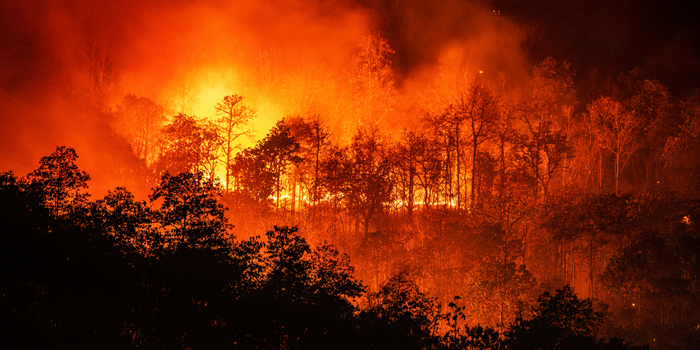Leaders and climate experts are meeting at the end of November.
European Union scientists have warned that it is a “near certainty” that 2023 will be the hottest year in 125,000 years, after it was revealed that October was the hottest on record.
Last month’s record broke the previous record set in 2019, by 0.4 degrees, a “huge margin” according to C3S Deputy Director Samantha Burgess, who added that it was “very extreme”.
“October has seen exceptional temperature anomalies, following on from four months of global temperature records being obliterated,” she said.
“We can say with near certainty that 2023 will be the warmest year on record, and is currently 1.43C above the pre-industrial average.”
The news comes as world leaders are due to meet climate experts in Dubai later this month for the 2023 United Nations Climate Change Conference (COP28).
“The sense of urgency for ambitious climate action going into COP28 has never been higher,” Ms Burgess added.
2023 set to be hottest year on record due to El Nino event
A multitude of factors are contributing to this year’s record-breaking heat, including the likes of the El Nino weather pattern, which warms the surface waters in the eastern Pacific Ocean, as well as greenhouse gas emissions from human activity.
The last El Niño event occurred in 2018-2019 on a smaller scale. The one prior to that was 2016 which saw a strong event take place and coincided with the hottest year on record globally.
During the summer of 2023, Europe saw dangerous large-scale weather events, like the ‘Cerberus’ heatwave which caused temperatures to reach well into their 40s across Spain, Italy, Greece and France.
Over 4,000 people were evacuated from La Palma in Spain’s Canary Islands in July, as wildfires raged through the tourist hotspot. Greece also faced its hottest summer in 50 years, which brought raging wildfires on islands like Rhodes.
Michael Mann, a climate scientist at University of Pennsylvania, said: “Most El Nino years are now record-breakers, because the extra global warmth of El Nino adds to the steady ramp of human-caused warming.”
The Paris agreement in 2015 is once again coming back into focus as world leaders promised to try to stop the planet heating by 1.5C by the end of the century, however current policies are set to heat it by about 2.4C.
Richard Allan, a climate scientist at the University of Reading, told The Guardian: “Only with rapid and massive cuts in greenhouse gas emissions, across all sectors, can we avoid these repeating headlines of record-breaking warmth and, more importantly, limit the growing severity of wet, hot and dry extremes that accompany a rapidly warming world.”
Related articles:
- “Quick-thinking driver” saves passengers from huge Dublin Bus fire
- U2 announce “a little break” from Las Vegas Sphere residency
- Radio presenter announces shock departure from Today FM show
- Teens killed in Donegal crash were reportedly returning home after night shift
LISTEN: You Must Be Jokin’ with Aideen McQueen – Faith healers, Coolock craic and Gigging as Gaeilge












































